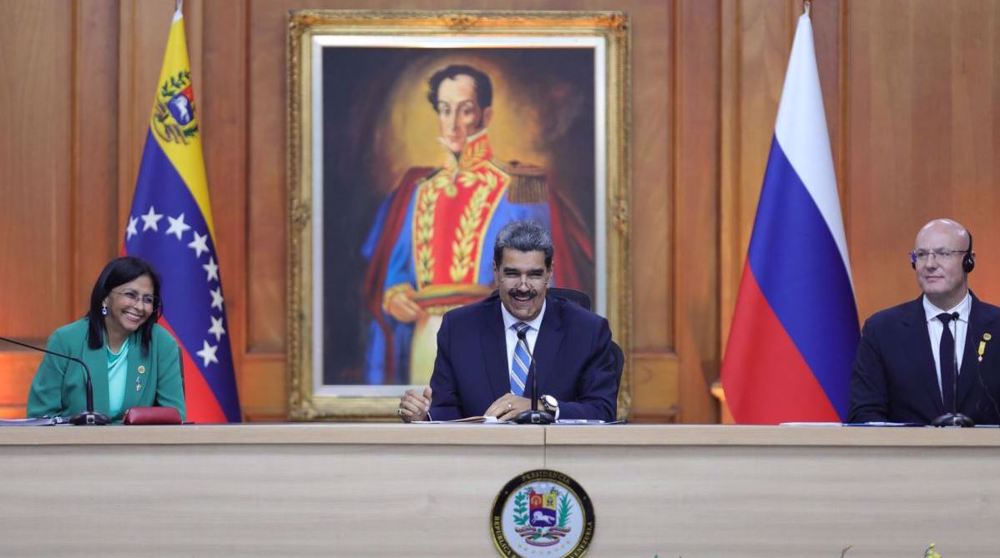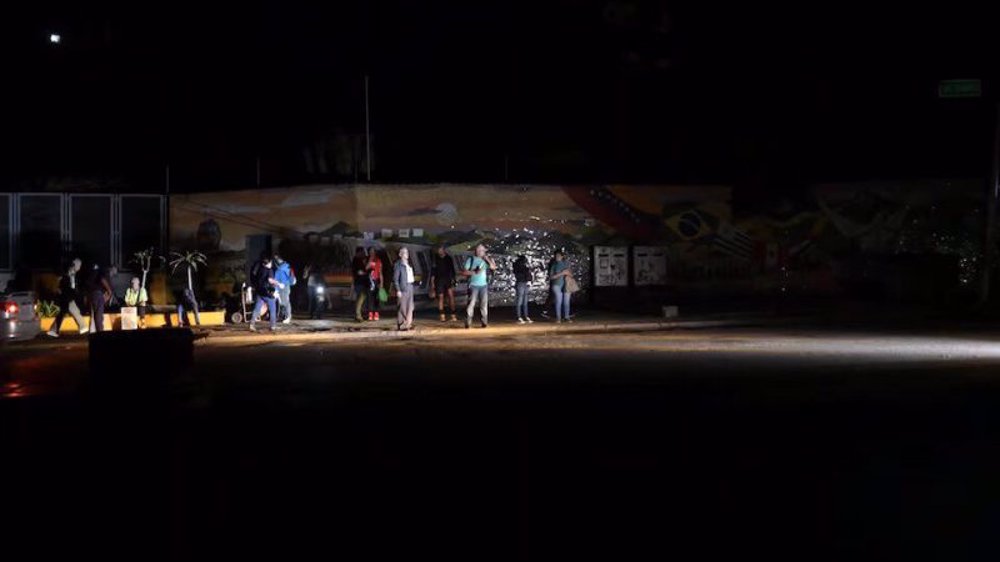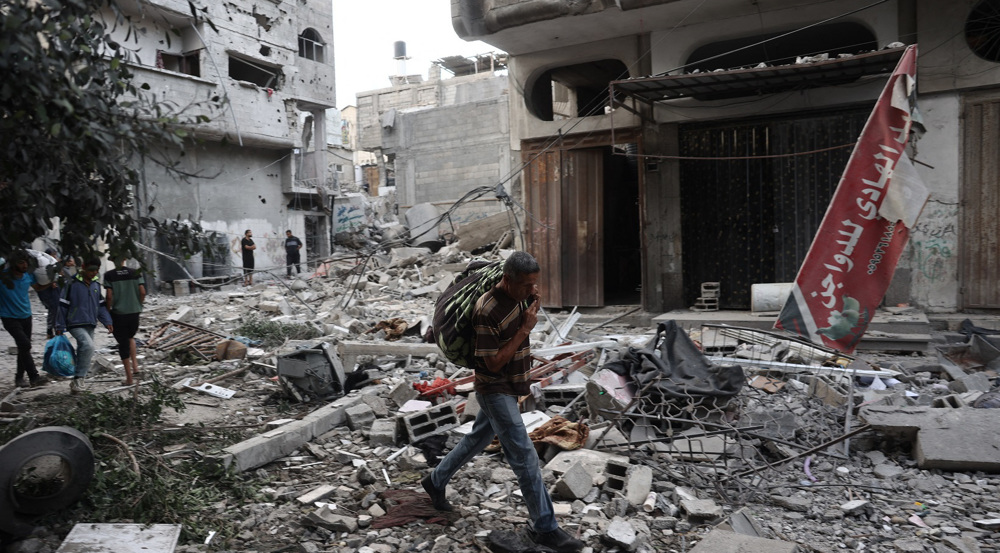Venezuela’s chief prosecutor decries violence as death toll rises
Venezuela’s chief prosecutor on Tuesday denounced a wave of unrest that has killed 26 people, vowing to hold all those responsible accountable and calling on both sides of a heated political spectrum to “lower the tone of confrontation.”
“The death of a person hurts very much,” Luisa Ortega Diaz said. “Whether they are with the government or the opposition.”
More than 400 people have been injured and nearly 1,300 detained in clashes since the Supreme Court ruling last month that stripped congress of its last powers. In an unusual move, Ortega Diaz broke with the government in the immediate days after the decision to denounce it as a “rupture” of the constitutional order. The ruling was later partially reversed amid a storm of international criticism.
On Tuesday, Ortega Diaz took pains not to single out the opposition or the government as bearing the bulk of responsibility for the violence.
“I want to express my firmest rejection to violence as an arm of political action,” she said. “Politics should not lead us to war.”
Tens of thousands of Venezuelans have taken to the streets over the last month to protest against socialist President Nicolas Maduro, whom they blame for triple-digit inflation, hours-long lines to get food, shortages of medical supplies, and a rise in crime. Protesters have clashed with security forces, which have used tear gas and rubber bullets to disperse crowds, and overnight looting has destroyed dozens of businesses.
Opposition leaders have blamed armed pro-government militias known as “colectivos” for a number of the deaths, while government officials have accused the opposition of working with criminal gangs to foment unrest.
“Right-wing terrorists have once again left Venezuelan families grieving in their continuous spiral of violence,” Nestor Reverol, Venezuela’s interior minister, said in a nationwide broadcast announcing the latest deaths.
A group of lawmakers from the opposition-controlled National Assembly gathered outside the chief prosecutor’s office before she spoke Tuesday to announce they would cooperate with any investigation and decry what they called the “criminalization” of peaceful protests.
“They talk of bullets,” lawmaker Tomas Guanipa said of the government. “We talk of votes.”
Opposition lawmakers are also ramping up pressure on Venezuelan ombudsman Tarek William Saab, announcing on Tuesday that they would be giving him three days to take action on their demand that the Supreme Court magistrates responsible for the retracted decision on congress be removed from office.
At the Tuesday legislative session, several lawmakers put up signs denouncing Saab as the “defender of the dictator.”
Saab already had publicly dismissed the possibility of trying the judges, and he reiterated that stance in a series of Tweets on Tuesday evening.
In announcing a tally of the violence, Diaz Ortega recounted two cases in which teenagers were allegedly killed by officers and another involving a 23-year-old woman, whose death was initially blamed on a group of pro-government armed civilians roaming the area. She said an extensive ballistics investigation revealed Paola Ramirez was actually killed by a man who fired his gun from a building nearby.
“We are working to punish those responsible so there is no impunity,” she said.
Of the 1,289 people detained, Diaz Ortega said there were cases in which police officers did not provide sufficient information to prosecute and that in those cases, her office has requested that those accused be freed. Without citing the opposition, she denounced claims that those detained have not received medical attention.
Diaz Ortega’s call for civility comes as government officials are urging Venezuelans to show up en masse for a May Day workers’ rally and opposition leaders are calling for continued street protests.
On Monday, thousands of opposition demonstrators blocked the main highway in Caracas, turning the roadway into a public plaza as part of nationwide sit-ins demanding new elections. The Caracas gathering was largely peaceful, but Diaz Ortega said there had been four deaths around the country.

The swell of protests is the most intense in the economically-struggling country since two months of anti-government demonstrations in 2014 that resulted in dozens of deaths. Maduro is calling for renewed dialog, but opposition leaders have discarded that as an option after earlier talks collapsed in December last year.
International pressure on Venezuela to schedule delayed elections and free political activists currently in detention has been steadily mounting. The Organization of American States (OAS) scheduled a special meeting of its permanent council Wednesday to discuss whether to call a meeting of the region’s foreign ministers on the situation in Venezuela.
A few hours after the OAS announcement, Venezuelan Foreign Minister Delcy Rodriguez told state TV that she has been instructed by Maduro to initiate Venezuela’s withdrawal from the regional group if a foreign ministers meeting is called without his government’s backing.
Addressing supporters and singing revolutionary ballads earlier in the day, Maduro showed no intent to tone down his combative rhetoric, saying he was willing to do whatever it took, “even give my life,” to pursue socialist policies that he said are meant to help and protect the nation’s working class.
“There is only one destiny for Venezuela,” he said. “The victory of the revolution.”
(Source: AP)
Hezbollah attacks Israeli forces after Lebanese homes blown up
World leaders, states hail ICC arrest warrants for Netanyahu, Gallant
MP: US accountable for possible Israeli 'foolishness' to attack Iraq
VIDEO | Israeli policies strangle Palestinian agriculture, economy
Iran's president offers condolences to Pakistan over terrorist attack
Canada’s Yukon town council at standstill over refusing oath to King Charles
Yemen's Houthi calls for jihad to protect Palestine against Israel
VIDEO | Internal rifts within Israel















 This makes it easy to access the Press TV website
This makes it easy to access the Press TV website